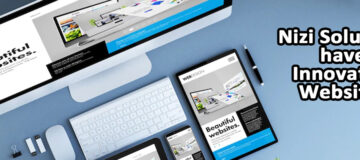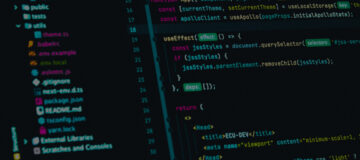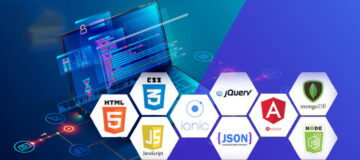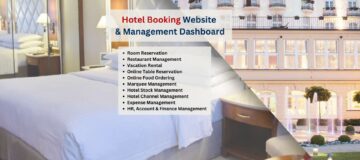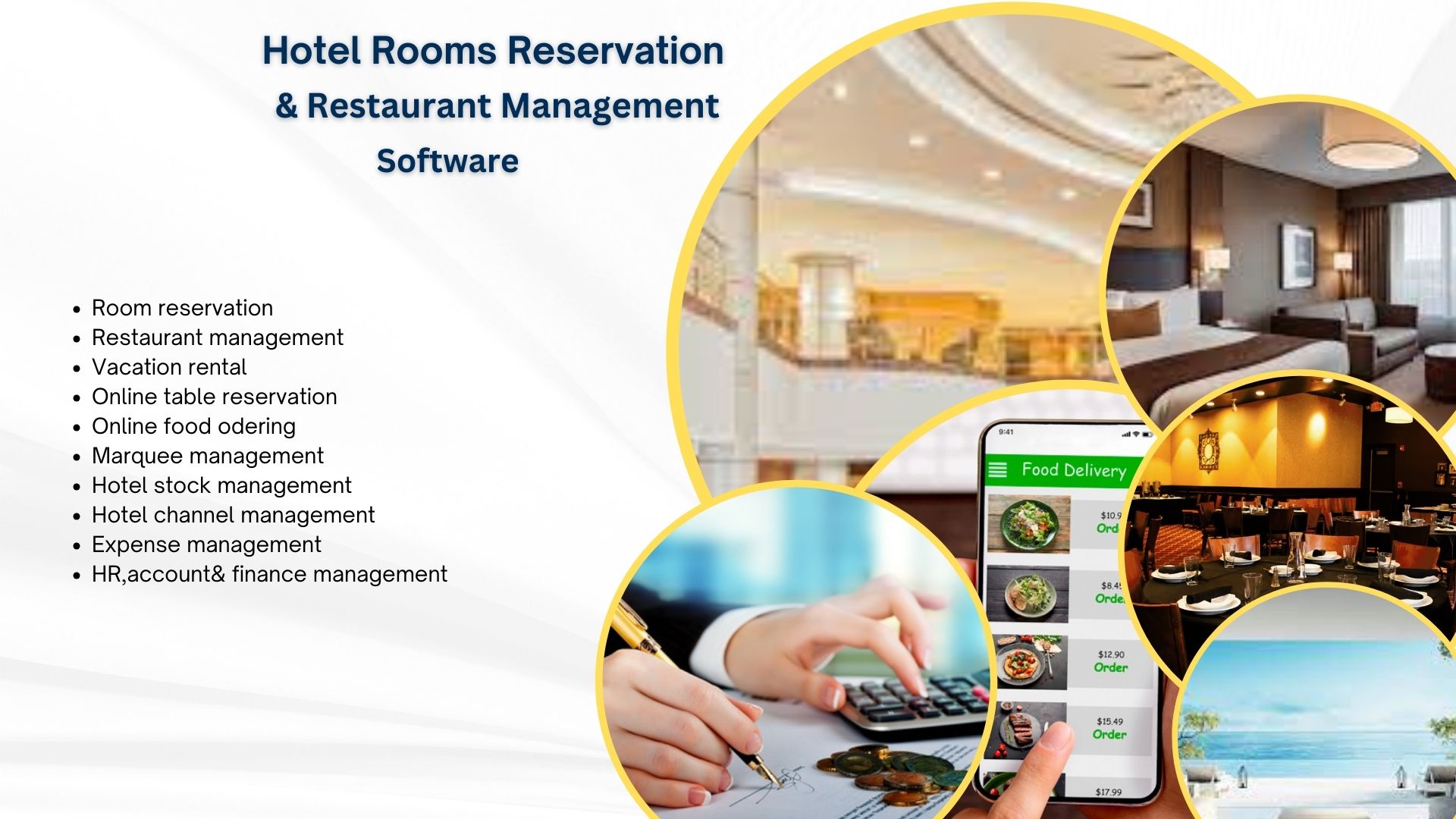
Hotel Property Management Systems
What does a hotel business require to survive in a competitive market? At least two items: Create an online presence that simplifies the reservation process and provides exceptional customer service so that people returning to your area choose your location again. Automating daily operations and administrative duties is a significant step towards increasing customer satisfaction since it allows for consistent and high-quality service.
A hotel is a complicated system that includes the actions of numerous departments, and each activity must be monitored. Hoteliers use a variety of methods to accomplish this, such as spreadsheets, paper forms, and unified property management systems.
In this post, we’ll look at property management systems (PMS), which handle reservations, front- and back-office operations, channel management, and more. You’ll learn about the primary features of PMS, compare solutions offered from various suppliers, and get advice on how to select the best system for your hospitality business.
What is a property management system?
A property management system (PMS) is software that helps a hotel handle reservations and perform administrative chores. The most significant functions include front-desk operations, reservations, channel management, housekeeping, rate and occupancy management, and payment processing. Although PMS software is mostly used for reservation and financial transactions, it can also be used to manage housekeeping and human resources. In general, PMS streamlines a hotel’s internal and external operations.
The main modules of property management systems
A modern property management system integrates numerous work areas into a single piece of software. The combination of modules and functions can vary depending on the supplier, and one module’s functionality may alter slightly. Additionally, some providers sell their systems as separate modules that can be linked with a hotel’s existing solution. Here’s the fundamental structure of a hotel PMS.
Keep in mind that it is difficult to classify PMS functions as more or less vital because they are all necessary. Regardless of the property type, hotel property management systems must have a reservation system with a website booking engine and a front-desk operating module. Other vital components include channel management, revenue management, housekeeping, customer data management, reporting and analytics. Large hotels or resorts undoubtedly require point-of-sale (POS) services and back-office components.
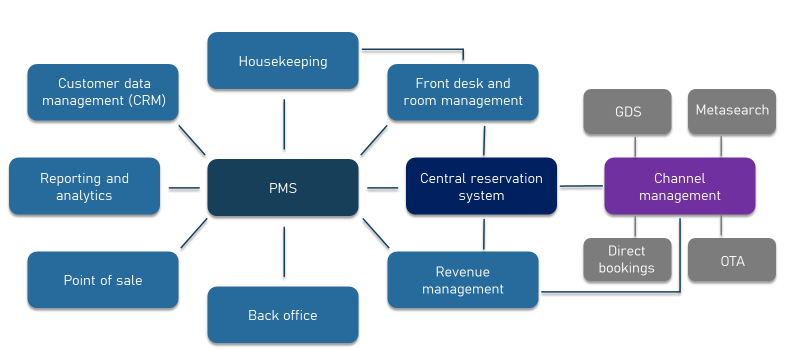
Reservation
For most modern hotel businesses, online bookings are the primary sales channel. The reservation module, which assists with online bookings, is effectively indispensable to a property management system. A central reservation system (CRS) or other reservation platform may be accessible as a separate PMS module or as a hotel’s own internal solution.
A hotel reservation system stores all inventory and date information and sends it to the front desk. The reservation system must be integrated with the website’s booking engine and other distribution channels. Chain hotels often have a centralised reservation system for all properties, whereas independent hotels have their own reservation systems. If a hotel or hotel chain already utilises a certain reservation software, the PMS must provide integration with the existing service.
Key features of the reservation module include:
Room reservations. The system analyses room availability and status, and displays free rooms through several channels, including the online booking engine. This service prevents repeated bookings and accepts group reservations. Then it schedules bookings and shows information about current and upcoming bookings on a dashboard.
E-payment processing. Software collects and categorises internet transactions.
Management of room inventory and allocation. Reservation tools avoid overbooking and multiple bookings. In some software, this function is included in a channel management module.
Reservation emails. When guests complete their booking, the system gives them confirmations. In certain PMSs, this capability is included in the front-desk operations module.
Book your activities. Some software enables customers to reserve not only accommodations but also activities using this system.
Front-desk operations and room management
A front-office module enables a front-desk manager to examine and update room reservation statuses, check guests in and out, and process payments. When a guest arrives at the hotel, they prefer to check in as soon as possible. In this instance, receptionist support is critical, thus front-desk personnel should be able to assist the guest efficiently.
Room status. The front-office manager can use a front-desk module to get room status and up-to-date information on all current and future reservations. This module should allow for rapid updates to the state of rooms. The front-desk module automatically allocates rooms and allows for room changes.
Key management. This module manages electronic key cards, processes payments, and issues receipts to guests.
Daily audits. The front-office module also enables users to conduct night and shift audits.
In-room controls. As hotels become smarter and more tech-driven, room management becomes increasingly important since it also allows remote operation of in-room automated systems (e.g., lighting, HVAC, etc.) to prepare the room for a guest’s arrival.
Revenue Management
A PMS in and of itself is a significant step towards improving hotel revenue management indicators such as occupancy, RevPAR (revenue per available room), and ADR (average daily rate), all of which are important in assessing a hotel’s financial performance. While GDS and OTA integration help to maximize these rates, revenue management solutions assist a manager in understanding how to change operations to get better results and maintain financial control.
Housekeeping
A PMS housekeeping module connects housekeepers to the front desk. A front-office manager can create a list of chores to assign, and housekeepers can update room status. If the PMS is cloud-based, housekeepers can update the status of their assignments or rooms using a mobile app or tablet. This module also keeps track of the user’s maintenance chores and reports.
This module’s main duty is to manage housekeeping and property maintenance. Housekeeping features include managing room status, assigning maids to clean rooms based on block or floor location, and keeping job lists for housekeepers. Maintenance management keeps track of hotel disturbances and repair work, and an attendant is assigned to resolve any issues that arise.
CRM and customer data management
It is vital for hoteliers to gather and organize visitor information in order to stay in touch with current and past clients during and after checkout. The CRM module must be integrated with the front desk and reservation system, gathering all guest information from these sources. It stores guest data and provides an accessible database. It also includes guest contact information prior to and following their stay. However, if a hotel already has a CRM system, the PMS should work with it.
This module can also help you organize marketing operations like promotions, monitor visitor satisfaction, and automate pre- and post-stay services. The CRM module enables owners to personalize the visitor experience through membership and loyalty programmes, which are especially crucial for hotel chains.
Reports and analytics
Analytical tools are used by all business owners to analyze current operations and understand performance. A property management system (PMS) can be used as a business intelligence tool, collecting important hotel data and generating various sorts of automated reports. Depending on the software, it can produce night audit reports, room and tax reports, shift audit reports, departure and arrival reports, housekeeping reports, and other continuous summaries.
Back-office management
This PMS module makes it easier to manage a hotel crew, as well as back-office and administrative hotel activities. A back-office management module may have the following functions:
- Event management (organising conferences and receptions) and catering
- Spa and gym management (often as a distinct, optional module)
- Staff management (human resources management in the back and front offices: shift management, staff invoicing, etc.)
- Services include analyzing consumption expenses and lodging spending, inventory, sales, promotional efforts, and managing reviews.
As a result, the back-office module streamlines internal procedures, helps to organize employees, and frequently contains accounting and other financial features.
Point-of-sale services
Most hotels offer an on-site restaurant, and many also have gyms and spas. So, if a hotel has many payment terminals, a point-of-sale (POS) system is required to receive and precisely process transactions from various sources. Hoteliers who use a POS module in their PMS can incorporate additional charges or discounts on each customer’s final bill. Examples of such charges are:
- Spa, gyms, and other activities;
- Food and beverage services (restaurants, cafes, breakfasts); and
- In-room services, mini-bar items, TV, or Wi-Fi.
A thorough POS module can help with inventory management, collect information about consumer purchase trends, generate sales activity reports, and save financial data in one place.
How to choose a PMS
The size and nature of a hotel property determine which PMS to choose, as each system has its own set of basic functions and additional modules. Most market companies have hotel management systems that may be customized for various types of properties, and basic PMS components can be supplemented with modules relevant to a particular type of business.
Many properties already have their own reservation platforms, or CRSs, or use other business management software, thus the selected PMS must be compatible with third-party products. The functionality required heavily influences the ultimate choice of a hotel’s property management system.



